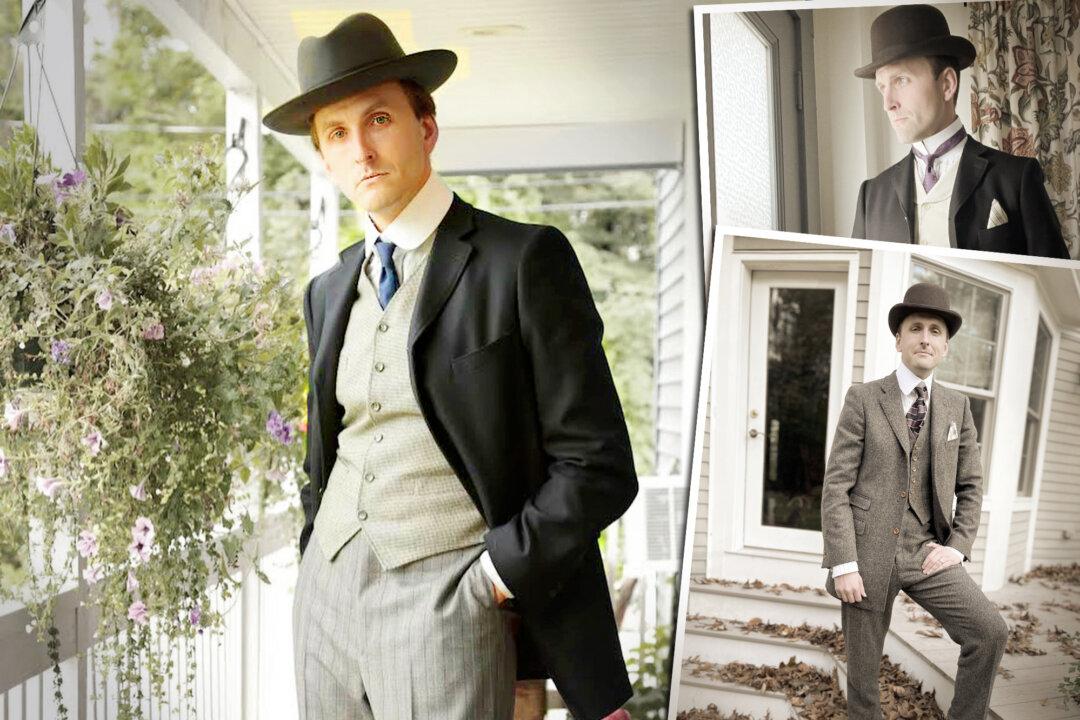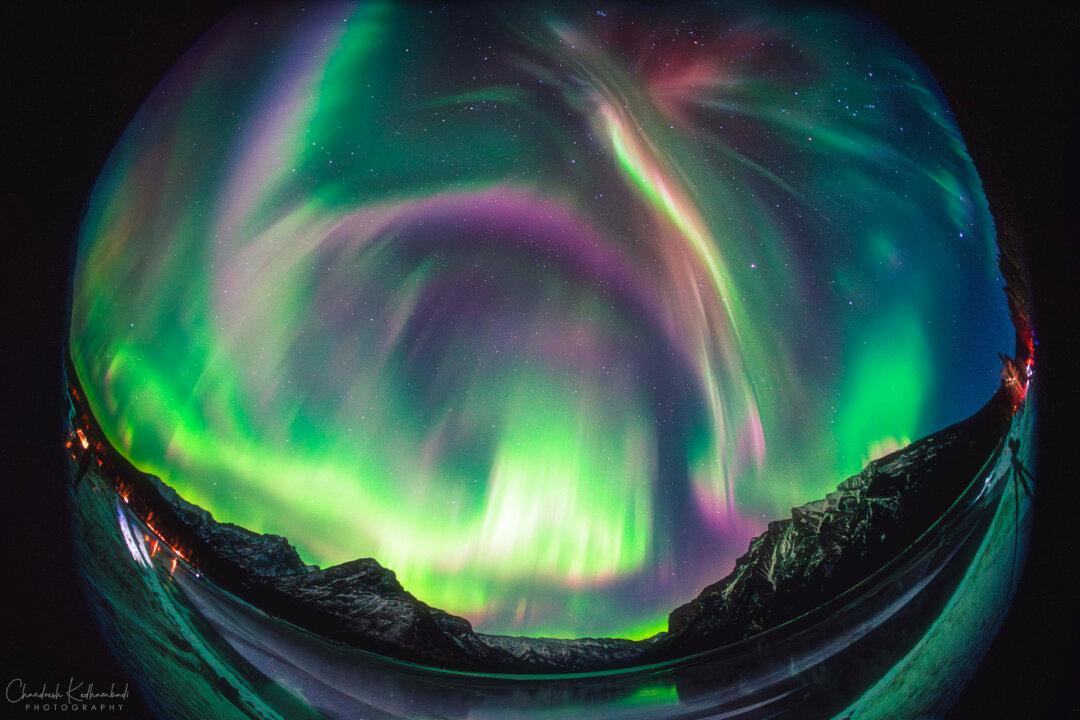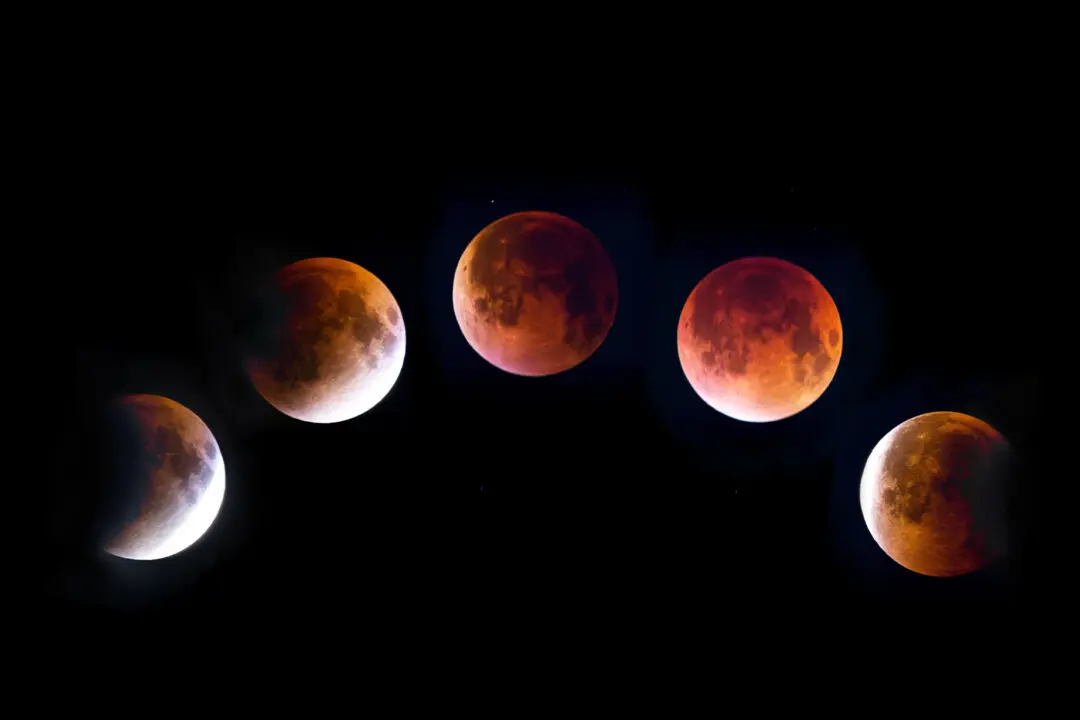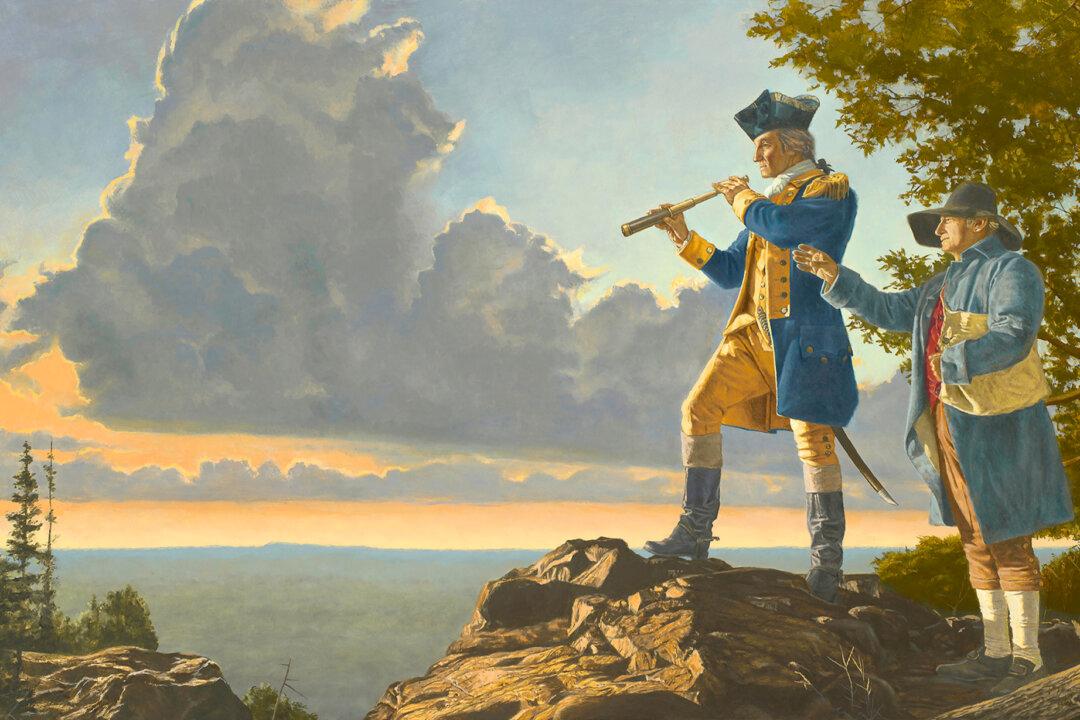Philip Southworth-Kreyche flips the page of his vintage Sears Roebuck catalog from 1917. The very long, one-button Edwardian tailcoat he spotted doesn’t get much play anymore, but he dreamt of it for his wedding day. For the most important day of his life, Kreyche would stitch it together by hand.
Punctuate that with a top hat, gray waistcoat, and early-1900s-style striped tie, and voila!—he had the Edwardian silhouette of his dreams.






